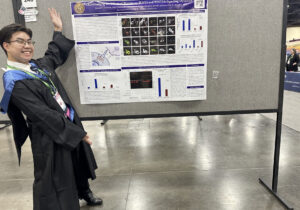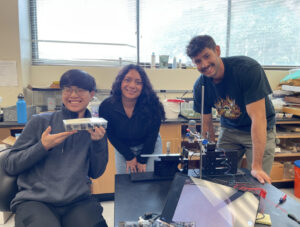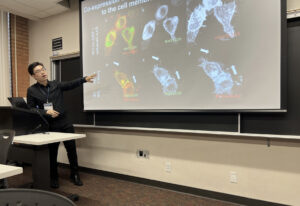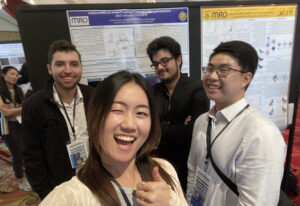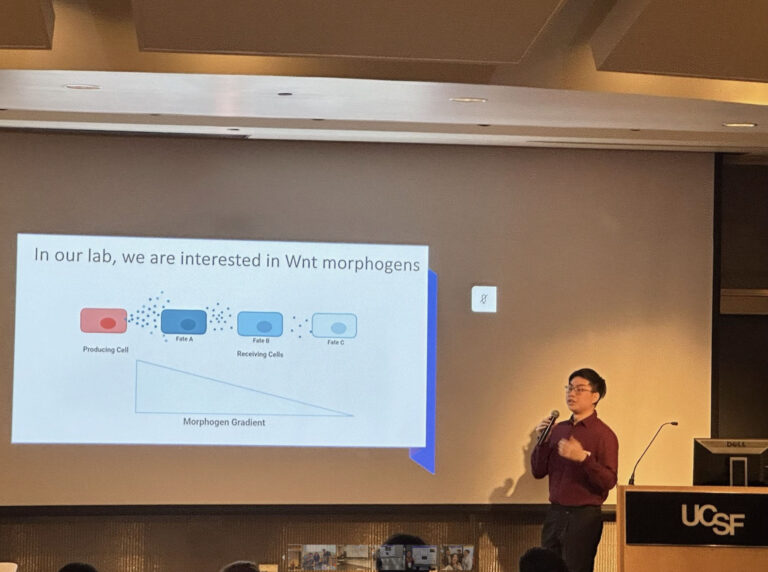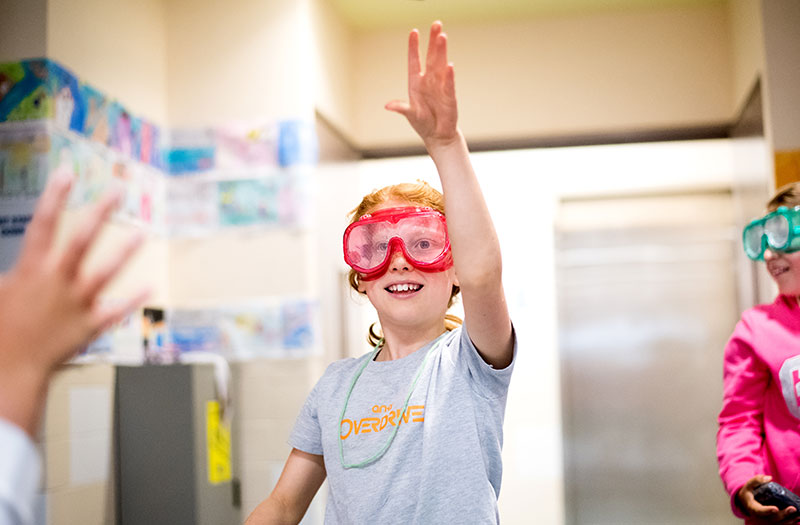Benjamin Lee (He/Him/His) is an undergraduate student at San Francisco State University (SFSU), in San Francisco, CA. Ben was previously a intern in SEP’s San Francisco Health Investigators Program (SFHI) and a volunteer at the Bay Area Science Festival. He will be attending Stanford in the Fall for his PhD.
What are you studying at SFSU? How long have you been there? I am currently a fourth-year Cell and Molecular Biology major at SFSU. I have been here ever since my freshman year in 2021.
What does your day-to-day look like in your current role as an undergraduate? Are you doing any internships?
As an undergraduate and a student researcher at the Burrus lab at SFSU, my day-to-day varies depending on the classes I take and the experiments I have. Most days, I attend my classes and then perform my lab duties, and when I have no classes, I spend my time working on experiments.
What is your favorite part about your studies/the work you are doing now? My favorite part of studying biology is how broad the field is and how specialized you can get within it. Whether you are interested in computation or lab work, there’s a place for you to study in biology, regardless of your interest. In my labwork, I am most interested in the ability to discover the unknown and how I can do an experiment and find something the world did not know previously.
What has your college path been like? My college path has been filled with twists and turns. I never thought I’d have a chance to do what I am doing (research) as an undergraduate and mentoring students as a teaching assistant. I also recently obtained a minor in computing applications and a certificate in data science that I did not expect. Although I have not expected it, I am thankful for the opportunities and mentorship that enabled me to grow and push forward.
What are some skills that have helped you succeed in college? Networking, networking, networking! It has been the single greatest skill that I have developed and allowed me to find success where I am. I got my first fellowship because of SEP, as the program director at SFSU was familiar with SEP and its accomplishments. From then on, I also got my lab position because I worked with my current lab manager on a separate project. You’d be surprised how many people are around you to help support and guide you.
SEP Program Experience
We know you began working with SEP by interning with the San Francisco Health Investigators Program (SFHI) and volunteered for the Bay Area Science Festival. What drew you to participate? How did it impact your future interest in science and career?
I participated in SEP SFHI in the summer of my Junior year (of high school) because of my growing interest in biology, having just finished honors biology. Attending SFHI taught me the importance of research and disseminating knowledge to my community (SF), which is why I volunteered at the Bay Area Science Festival as well. These experiences were the seeds that were planted and germinated in college when I decided to pursue research and worked on disseminating knowledge as a teaching assistant and peer mentor in the Center for Cellular Construction workshops.
What was your overall experience like? What did it teach you?
Growing up as a first-generation college student I did not have anyone around me that did science. So SFHI gave me a glimpse of what it looked like to do science and also evaluate how science knowledge was spread in my community. I remember our project that year was on Influenza, and I was shocked to learn about the number of people affected by Influenza and the vaccine misconceptions surrounding it.
What person, project, or aspect of the program, if any, influenced you? Dr. Rebecca Smith and Dr. Ben Koo were both incredibly inspirational to me. They helped me navigate the college process and my growing passion for biology. I remember consulting Dr. Rebecca Smith when deciding between UC Davis and SFSU. I only knew a bit about SFSU then because my sister attended it, and it was significantly cheaper than UC Davis. She was resourceful and told me about SFSU, from its outstanding professors who cared for student success, lab experiences, and student funding (from the Student Enrichment Opportunities Office). This was the deciding factor that led me to SFSU, and now that I am almost graduating, I can say without a doubt that SFSU is all the above and more.
How have you grown since your time in SEP’s programs?
Since SEP, I have pursued a B.S. in Biology and will graduate shortly. I have most recently applied for the National Science Foundation Graduate Research Fellowship Program and graduate school to obtain a Ph.D. in Stem Cell Biology (fingers-crossed). I have pursued research at the Burrus lab for the last two years and participated in the Center for Cellular Construction workshops that resulted in a second-author publication. Drawing from my experiences at SEP, I have taught and mentored nearly 150 students (2 graduates, over 100 undergraduates, and over 30 elementary schoolers). I plan to continue training and mentoring others just as my mentors have done so for me.
Do you have any fond memories you’d like to share during your time in SEP’s program(s)?
One of the coolest memories I had from SEP was when I ran my first gel electrophoresis (a technique that I still use today), which separates DNA based on its size. Although we only used food coloring, seeing that color gradients formed when the food coloring separated was mesmerizing. Other fond memories include performing a rendition of “thank you, next” by Ariana Grande with Ernest, Melanie, and others, singing karaoke at UCSF Mission Bay, and launching our social awareness campaign.
What are some life lessons you’d like to share with our high school interns/participants?
It never hurts to reach out! Most people are welcome to help you so take advantage of it and don’t hesitate to ask!
Do you have any accomplishments you would like to share?
2024 – California State University Sally Casanova Pre-Doctoral Fellowship (2024)
2024 – SFSU College of Science and Engineering/Gilead Foundation Award
2024 – Society for the Advancement of Chicanos/Hispanics and Native Americans in Science National Diversity in STEM Conference Travel Scholarship
2024 – Stanford ADVANCE Undergraduate Institute Scholar
2023 & 2024 – SFSU Instructionally Related Activities Student Research Award
2023 – California Institute of Regenerative Medicine COMPASS Fellowship
2023 – Stanford Shooting Star Award
2023 – SFSU Instructionally Related Activities (IRA) Student Travel Award
2023 – American Society for Cell Biology Minorities Affair Committee Travel Award
2022 – California State University – Louis Stokes Alliance for Minority Participation
2022 – Genentech Promoting Inclusivity in Computing Scholarship
2021 – Genentech Foundation Scholarship
2021 – Elmira Sanderson Endowed Scholarship
